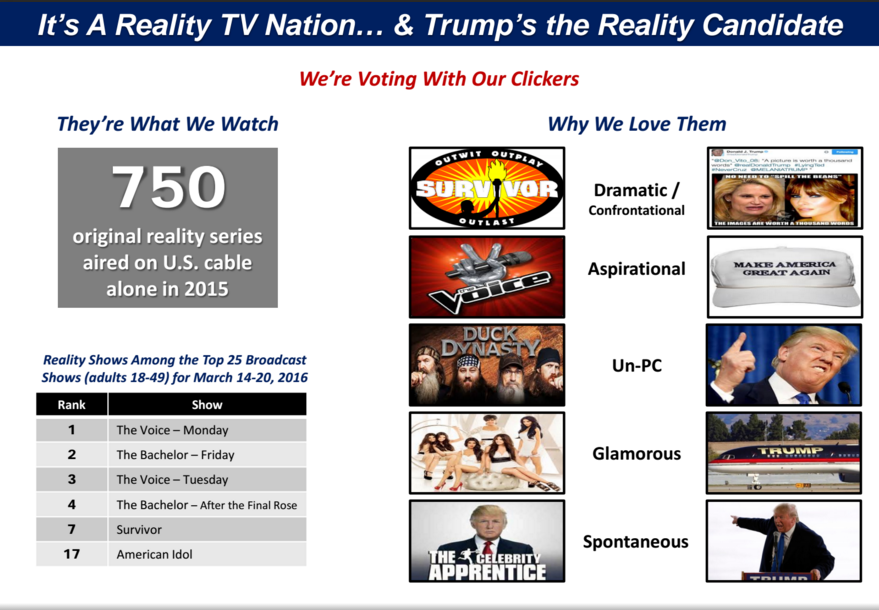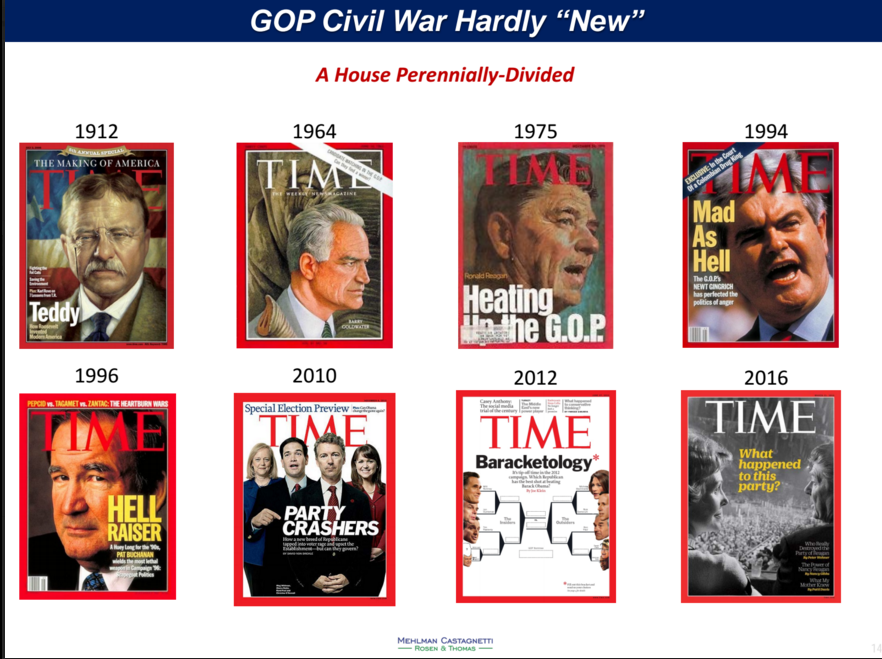There are two schools of thought about the potential impact of a Donald Trump nomination. One school says that he could effectively end the GOP as we know it—that parties do go away and that coalitions are never permanent.
Another school of thought says this is just handwringing. There’s nothing new under the sun. Parties have always had to adapt in order to remain relevant, and—after all—the GOP has survived other disruptive strongmen, such as Theodore Roosevelt, before.
People who worry that the former theory might be true do not dispute the cyclical nature of populist uprisings. The difference, they argue, is that Trump represents something new and linear—that he is sui generis. Trump’s status as a reality TV star is an example of this. While we have always had celebrities, Trump takes it to a different level—which means that comparing him to TR (or even Ronald Reagan) is like comparing apples and oranges. To illustrate this, my friend Bruce Mehlman’s eagerly anticipated quarterly look at key trends in politics and policy demonstrates how Trump is tapping into all sorts of 21st century erogenous zones.

In other words, Trump didn’t invent the guitar. He just invented the electric guitar (and he turns his amp up to “11”).
Those who believe a game-changing moment is afoot are understandably more worried than are people who think Trump’s rise is just the latest manifestation of a historical pattern. Believers in this cyclical theory might take comfort in Michael Barone’s recent Wall Street Journal op-ed that concedes it’s likely Trump “will inflict significant damage” on the GOP—but predicts that the fallout will probably be “nothing like the serious, though temporary, damage inflicted by that vastly more talented, experienced and intellectually serious disruptive New Yorker, Theodore Roosevelt.”
This is not an absurd theory. It’s true that the GOP has been nothing if not a constant struggle between reformers and establishment types (as Mehlman’s slide of Time magazine covers illustrates). Is it not narcissistic of us to assume that this latest incarnation—the one we’re currently living through—is somehow different?

Barone’s piece might be comforting, but he’s been wrong before in a big way. The safest assumption, I think, is that Trump is different. I’m not old enough to have lived through TR’s time—or even Goldwater’s—but, anecdotally, what is happening today feels dramatically different from the Pat Buchanan or Ross Perot movements. In both of those cases, the impact was temporary; the major parties were able to co-opt elements of their messages while the times changed, making those movements less relevant.
The question regarding the potential long-term damage Trump could do is not a trivial one, inasmuch as this calculation could inform to what degree Republicans are willing to pull out all the stops to prevent a Trump nomination.
Ultimately, we’re left with this question: Is Donald Trump just the most recent incarnation in what is a predictable and cyclical populist upheaval, or is he a uniquely serious threat?
The truth is that he’s probably both.


